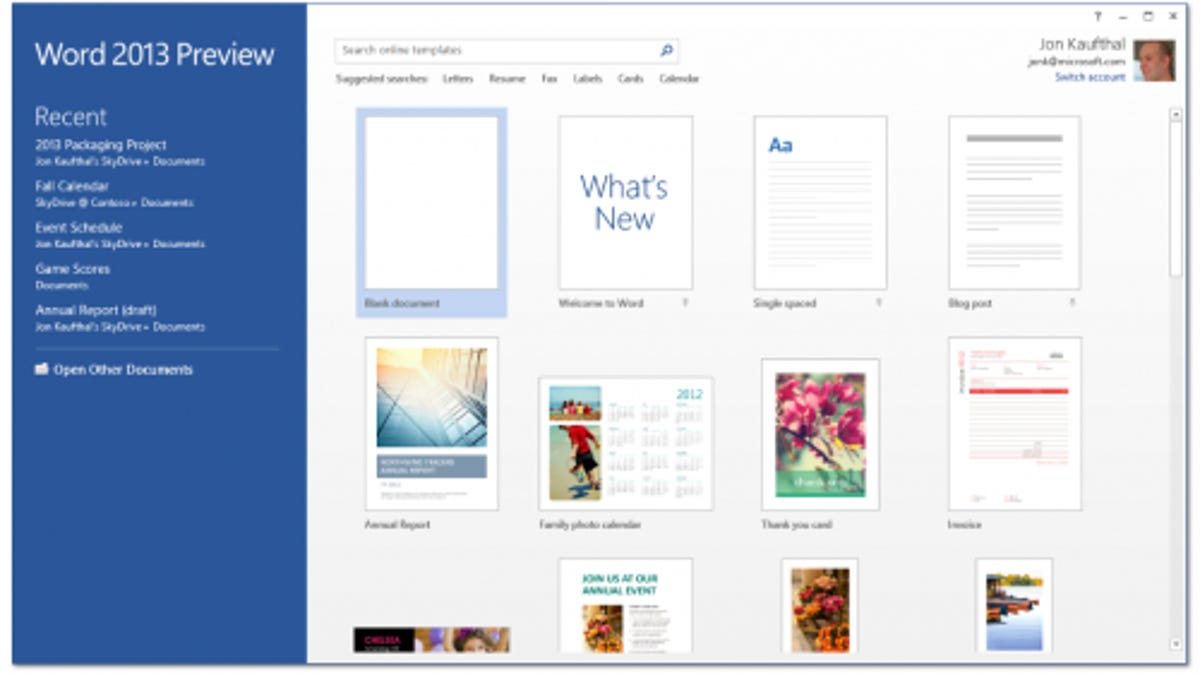XP and Vista users, no Office 2013 for you
The new Office suite will support only Windows 7 and 8 on the desktop, leaving users of older Windows versions out of the running.

Still running XP or Vista and eyeing Office 2013? Sorry, you're out of luck.
Unveiled Monday, the upcoming new Office suite won't support Windows XP or Vista, meaning users who need or want Office 2013 will have to upgrade to Windows 7 or Windows 8.
Microsoft confirmed the tighter requirements on its Office 2013 Preview Technet page. Only Windows 7, Windows 8, Windows Server 2008 R2, and Windows Server 2012 will be able to run the new suite.
Users will also need a PC with at least a 1GHz processor, 1GB of RAM for the 32-bit version (2GB for the 64-bit version), at least 3GB of free hard disk space, and a graphics card that can provide at least 1,024-by-576 resolution.
The PC specs shouldn't be a challenge for most users. But the OS requirement may prove problematic.
Vista users have been dropping like flies, most of them likely upgrading to Windows 7 by this point. Recent stats from Net Applications showed Vista's market share at less than 7 percent in June, and steadily dropping.
But Windows XP is hanging on after more than 10 years.
Though Windows 7 is likely to claim the top spot this month, XP still holds more than 40 percent of the market, according to Net Applications.
That figure certainly covers many businesses, large and small, that rely on XP as a standard and stable environment that supports all their applications and is familiar to their users.
Microsoft may be hoping that the appeal of Office 2013 will prompt more users and businesses to move away from XP. The company may even be looking at the combination of Windows 8 and Office 2013 to convince more people to upgrade both their OS and Office suite around the same time.
Extended technical support for Windows XP will also end in April 2014, which means no more patches, bug fixes, or other updates. Microsoft has revealed no release date for Office 2013, but let's assume it debuts by the end of the year or early 2013. Why support an operating system that's due to expire the following year, especially when you're trying to push users to upgrade?
Still, it's a gamble. The number of XP installations will certainly continue to fall as more companies make the move to Windows 7. But even by the time Office 2013 launches, XP will still hold a healthy chunk of the market, leaving a lot of people unable to run the new suite.
Windows and Office are Microsoft's two bread-and-butter products, accounting for a major chunk of the company's business. To continue to generate revenue, Microsoft needs its customers to constantly migrate to the latest versions of both products.
And while individual users can easily upgrade a single machine, businesses face the time, expense, and effort of migrating hundreds, thousands, or tens of thousands of machines. So despite Microsoft's best efforts, many companies will continue to hold on as long as they can with their current versions of Windows and Office.

